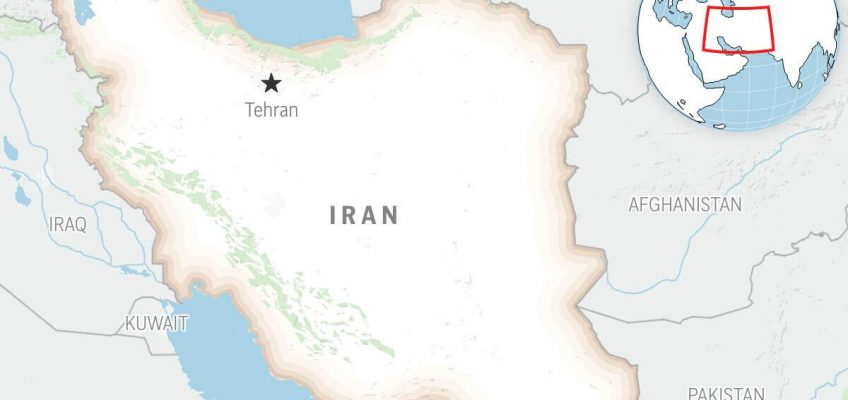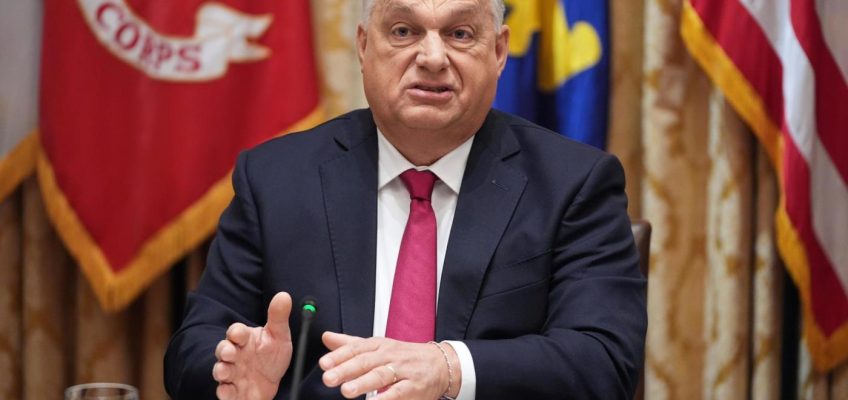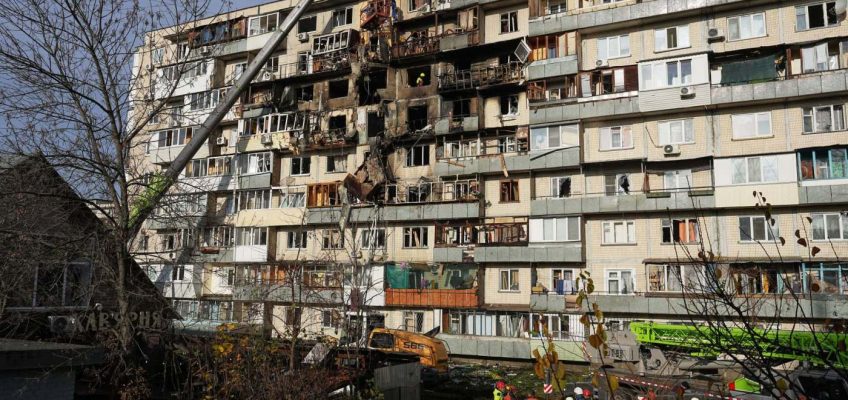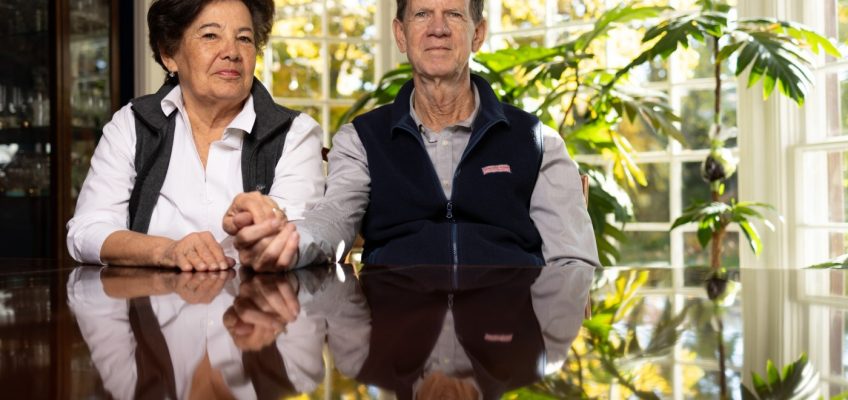After Hurricane Melissa’s exceptionally strong winds subsided, the roots of breadfruit trees clung deep into the fertile Jamaican soil — offering hope and a step toward food security in the future.
For the past 16 years, Mary and Mike McLaughlin, Jamaican natives who now live in Winnetka, have helped plant almost half a million fruit trees — mostly non-native breadfruit — across the Caribbean and Africa, about 250,000 of those in Jamaica alone. Despite its resilience, breadfruit has long been an underutilized source of food, Mary McLaughlin said.
The couple’s Trees That Feed Foundation aims to expand its use as a crop in locations vulnerable to extreme weather events that are intensifying because of human-made climate change. Several rapid scientific analyses found Hurricane Melissa was made more likely and intense because of global warming from fossil fuels.
“It’s one of the worst hurricanes — well, it’s the worst hurricane ever” in the Caribbean country, Mary McLaughlin told the Tribune, “and it hit Jamaica in its breadbasket,” the southwestern parish of St. Elizabeth, dubbed after its fertile soil, favorable to many crops that feed the country.
Having planted trees in that area, the foundation expects to have some losses.
“However, we have worked in countries that have had hurricanes and seen recovery, and if the trees have roots in the ground, those trees will recover. And we know we may miss a bearing season, but the following year, they will produce,” Mary McLaughlin said.
At the same time, she said, the trees “lock carbon away while feeding people,” essentially addressing the root of increasingly destructive weather events.
Jamaicans are now coping with the aftermath of a hurricane so severe it is tied with one from 1935 for the third strongest ever recorded in the Atlantic Ocean and most intense to make landfall.
Rita Hilton, who has lived in Jamaica for 60 years, works with the McLaughlins and helps farmers export their crops. She called the hurricane “the most intense, horrific storm” she has experienced. Hilton was airlifted to Kingston, the country’s capital, this week after seven days in her isolated, torn-down home.
“If you look at all the forest trees, there’s not a green leaf; there are tree stumps sticking out of the ground or lying across the road,” she told the Tribune. “Whatever crops were in the ground have been destroyed in that area.”
But not all is lost — especially where those stumps belong to breadfruit trees.
“In times of disaster such as this, when a lot of agricultural produce is damaged, we need things that can actually survive … and if not survive as they were, actually regenerate,” said Ainsley Henry, conservator of forests and CEO at Jamaica’s Forestry Department, with which the foundation has collaborated for years. “And the beauty of breadfruit is, it’s a very hardy species. … If it does get broken or all the leaves get blown off, it doesn’t matter.”
Because these trees reproduce vegetatively — that is, new plants grow from parts of a parent plant such as roots, stems or leaves — they are resilient to and can even propagate after this kind of storm damage, Henry said.
While breadfruit trees were introduced to the Caribbean by colonizers in 1793, the specific variety they brought in is noninvasive as it is seedless, and its propagation can be easily controlled. British explorers learned about them in the Pacific Islands, where the trees evolved to withstand tropical cyclones.
A convoy carrying aid to Black River, which was hit by Hurricane Melissa, makes its way through Holland Bamboo, Jamaica, Oct. 29, 2025, where downed trees and debris partially block the road. (Matias Delacroix/AP)
“They’ve had to adapt to challenging environments. And they do tend to be able to bend, like you see palm trees adapted to wind, they are able to resist some of those strong winds,” said Nyree Zerega, director of a collaborative program of plant biology and conservation between Northwestern University and the Chicago Botanic Garden. “And also when they do break, they grow back. Those are the characteristics that help them do really well in island-type settings.”
Zerega, who is a board member at the foundation, studies underutilized tree crops, especially in the genus Artocarpus, to which breadfruit belongs. She said research at Northwestern has shown there are some areas in the world, such as sub-Saharan Africa, where breadfruit could be grown in the future, depending on potential changes to the climate, boosting food security.
“You don’t have to replant a tree like you replant rice or you replant corn or wheat,” Mike McLaughlin said. “And these fruit trees live 100 years or more, and they’re giving you hundreds of fruit. The return on your initial investment — the financial return on the fruit tree — is huge.”
Once mature, he said, a single breadfruit tree can produce 100 to 200 fruits each year.
“The hundreds of thousands of trees, times hundreds of fruit per year — and each fruit can be multiple meals,” Mike McLaughlin said. Since the breadfruit program started, he said, “we’ve supported, we’ve fed people to the extent of, we estimate, 450 million meals over the course of time. That’s not every year, but over the course of time. So that’s a big impact.”
Mary McLaughlin compared the starchy, tropical fruit, which is round and yellow when ripe, to a potato growing from a tree, but with a shorter shelf life than a banana.
“Some (varieties) tend to have higher this or that than others, but on the whole, they all have a lot of valuable nutrients and minerals and vitamins,” said Zerega.
The fruit has a subtle, pleasant flavor that complements a wide variety of dishes, she said. And it can be prepared in many different ways.
“You can use breadfruit for anything that you can use a potato for,” Mary McLaughlin said. “You can boil it, you can roast it, you can fry it, and you can use the sun to dry it, and then it can be ground into flour.”
Still, there is an immediate need for food, as the second harvest season was just getting underway in Jamaica.
“All the crops are wiped out,” Hilton said. “And there’s going to be a serious issue with food security in the next six months.”
Fallen breadfruit, however, has emerged for locals as a crucial form of subsistence in recent weeks; two Jamaican newspapers wrote about people eating them in a pinch, as the food supply has suffered with roads impassable from the storm damage.
“The breadfruit trees that did come down,” Hilton said, “have been a godsend for some of the communities.”
As the country recovers, replanting more trees will be crucial to ensuring food security.
In the next few months, a new grant from the foundation will fund the planting of at least 15,000 trees in Jamaica, according to the McLaughlins.
The yearslong collaboration between the foundation and Jamaica’s Forestry Department began when the latter started replanting native forests, mostly timber trees such as blue mahoe and mahogany, that are more evolved to withstand strong winds.
“The plan is to use more and more natives in our reforestation programs and to transition some of the existing areas that have a high percentage of nonnative species,” Henry said. “This will increase the resilience of these spaces, particularly in light of the threat — the obvious and current problem of hurricanes in Jamaica.”
The couple approached the local government with the idea of also distributing fruit trees, which have the added benefit of offering a bountiful harvest every year without the need to replant a crop.
After moving to the United States for Mike McLaughlin’s job as an actuary in 1978, the McLaughlins settled down in the Chicago area a decade later. But their connection to their homeland remained strong, especially in the early 2000s when they began feeling an itch to take action because of the climate crisis and its consequences for island nations such as Jamaica. And so Trees That Feed was founded.
The way the partnership works in Jamaica, the foundation gives the Forestry Department grants to buy cuttings from the country’s plant nurseries, which the government then distributes among small farmers at no cost.
“We do get our hands dirty, but us two little people can’t plant half a million trees,” Mike McLaughlin said. “We work with farmers. They really know what they’re doing.”
“So we don’t go in and impose,” his wife added.
The farmers want a sense of ownership over the trees, she said, which carries on to the small businesses that can grow from selling the fruit.
The program facilitates food security and income generation, said Henry, the head of Jamaica’s Forestry Department.
“You heard of win-win? Well, this is win-win-win-win,” Mike McLaughlin said. “The win is nutrition. The win is the environment. And the win is the economy. … And our donors are generous people, and I would say they are winning too. They want to help, and we give them a way to help that is very efficient.”
adperez@chicagotribune.com




